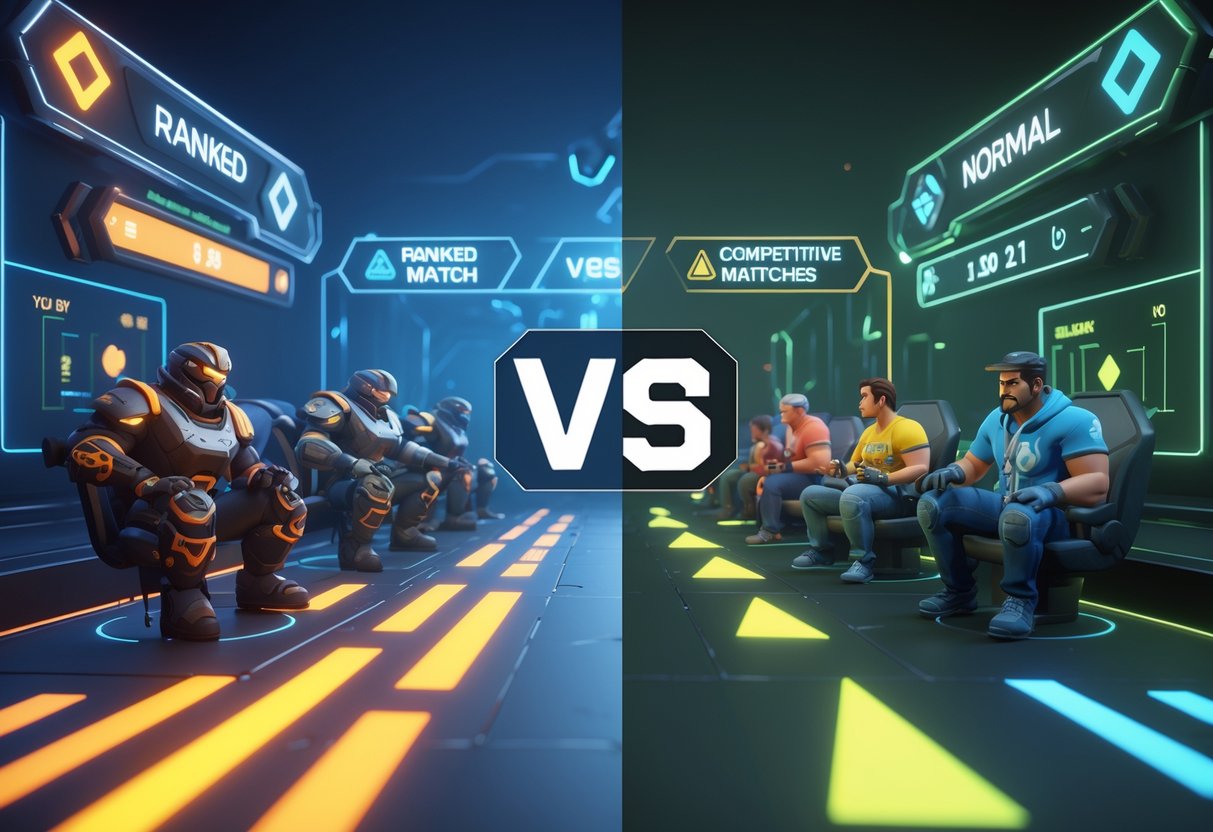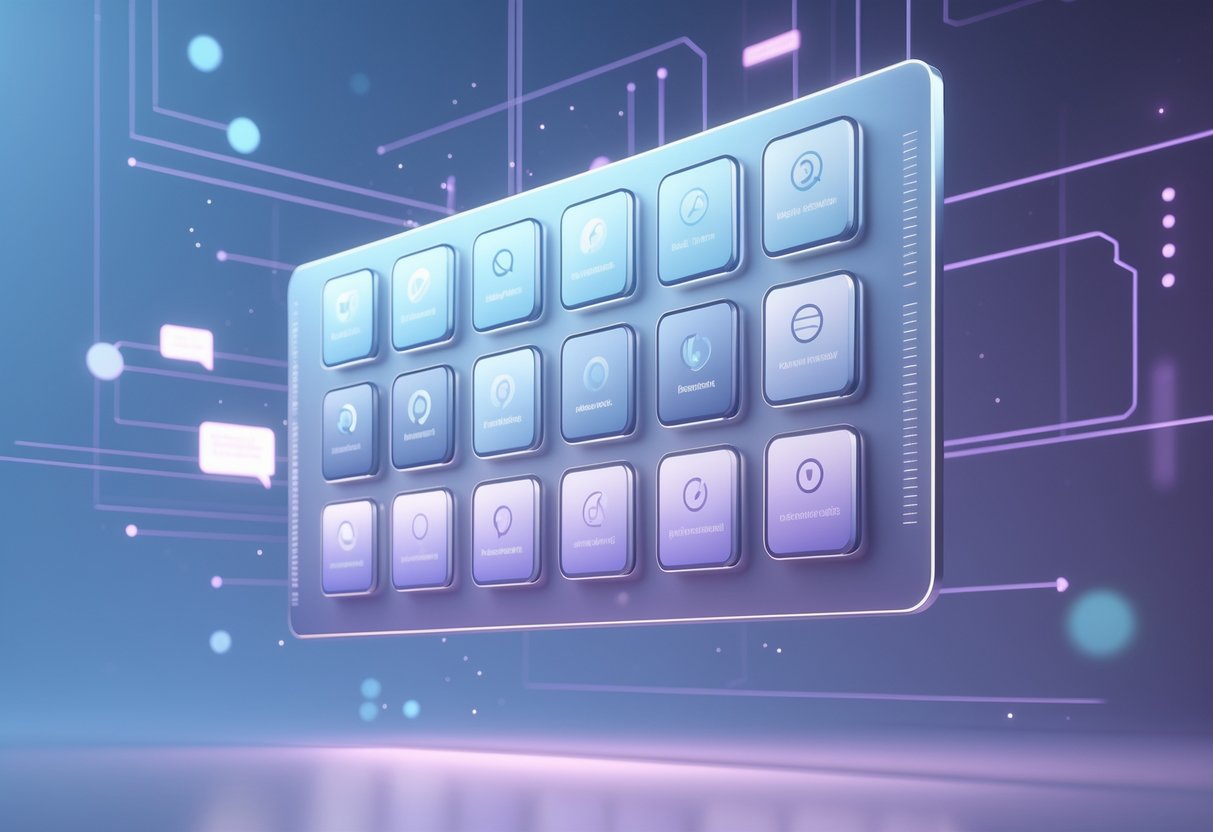Remake Conditions: How to Remake in League of Legends
Updated On: October 26, 2025 by Aaron Connolly
Understanding Remake Conditions

League of Legends’ remake system sticks to some pretty strict requirements, and you’ve got to act fast. Riot built these rules to protect players from unfair losses but also to keep people from abusing the feature.
Definition of Remake in League of Legends
A remake lets your team end a match early and dodge penalties if someone on your team goes AFK right at the start. It’s not really the same as surrendering—it’s more like Riot’s way of saying, “Hey, you shouldn’t get punished because someone else disconnected before things even got going.”
When a remake goes through, the match ends on the spot. Most players won’t lose LP, get XP, or earn Blue Essence. For everyone except the AFK player, it’s like the game never happened.
But the AFK player? They get hit with the full penalty. They lose LP just like they lost a normal game, and Riot’s LeaverBuster system flags them. That can mean longer queue times next time or even more LP penalties down the line if they keep it up.
Purpose of Remake Feature
This system exists because early disconnects ruin games. Without remakes, you’d get stuck in 4v5s and lose LP or MMR, even though it wasn’t your fault.
Riot put this in for when stuff just happens—maybe someone’s internet drops or their PC crashes before the match really starts. The rest of the team shouldn’t have to pay for that.
With remakes, matches start on a level playing field. It also helps keep things less toxic, since nobody enjoys being forced into hopeless games right out of the gate.
Key Triggers for Remake Availability
You can only remake if a few things line up:
Player Inactivity Requirements:
- A teammate has to be disconnected or inactive for 90 seconds from the start
- Maybe they moved but didn’t buy items or leave base
- Or they’re just totally disconnected
Timing Window: You can only call for a remake between 1:30 and 3:00 on the game clock. Before 1:30, the system’s watching but won’t let you vote. After 3:00, you’re out of luck.
First Blood Restriction: If First Blood happens while your teammate was still active, you lose the chance to remake. Once PvP starts, the game considers it “official.”
Voting Requirements:
- 4v5: You need 2 players to type
/remakeand vote yes - 3v5 or 2v5: Only 1 vote is enough
- You get one shot per match—if the vote fails, that’s it
Core Requirements for Initiating a Remake

To trigger a remake, teams have to hit specific timing windows and meet absence thresholds. These rules try to stop people from abusing remakes, but still make it fair if someone really disconnects.
Timing and Duration Thresholds
Most competitive games set strict time rules for remakes. In League of Legends, you can only start a remake after 3 minutes have passed.
Valorant does it differently:
- Remake votes can’t start until after round two ends
- Disconnected players get a full round to reconnect
- Teams wait until round two is completely over
These timing rules stop instant rage-quits from triggering remakes. If someone disconnects in the first few minutes, there’s a good chance they’ll be back quickly.
Key timing rules:
- You have to wait before voting is allowed
- There’s a cutoff—remake options expire after a certain point
- Players have a grace period to reconnect
Once a match gets underway, the system disables remakes. This way, teams can’t bail just because things look rough early on.
First Blood and Its Impact
First blood can kill remake options in a snap. Once real combat happens, the match is considered “started,” and remakes are off the table.
League blocks remakes if first blood happens before the AFK timer runs out. This stops teams from grabbing an early kill and then trying to reset the game.
First blood blocks remakes when:
- Any player dies to an enemy
- Someone takes jungle monsters or objectives
- The game sees “meaningful” action
The system tracks all this automatically. If a player disconnects after first blood, the team loses the remake option.
Valorant does things differently, focusing on rounds instead of first blood. Even if someone gets eliminated early, teams can still remake if they meet the AFK criteria.
AFK and Disconnection Criteria
To remake, someone on your team has to be actually AFK or disconnected. The game uses detection systems to spot real absences and block abuse.
What counts as AFK:
- Fully disconnected from the server
- No input or movement for a long time
- Not joining in team fights
You need fewer than the full team present to remake. In a 5v5, at least one person has to be missing.
The absent player gets punished:
- They lose ranked points in competitive modes
- They might get matchmaking restrictions
- Repeat offenders get harsher penalties
If you’re playing with friends and one goes AFK in high-level ranked, the premade group can get hit with penalties too. This stops people from abusing the system to dodge tough matches.
If the AFK player comes back and starts playing before the vote finishes, you can’t remake.
How to Start a Remake Vote

Starting a remake vote has its own steps and timing, and every game handles it a little differently. You’ve got to meet the requirements, or the remake just won’t go through.
Step-by-Step Voting Process
To start a remake vote, just type “/remake” in chat during the allowed window.
In League, you can do this once the clock hits 1:30. After 3:00, you lose your shot. If you miss the window, that’s it.
Valorant is pickier about timing. You get to remake only during round two. When round two ends, the option disappears.
You only get one remake vote per match. If it fails, you’re stuck playing.
Some games like Wild Rift use a menu button instead. Just go to settings, and the remake button replaces the surrender option while the window’s open.
What Happens During the Voting Window
Once someone types /remake, everyone still connected sees a voting prompt. Press F5 or type “/yes” to vote for the remake.
How many votes you need depends on how many players you have left. If it’s 4v5, you need at least two yes votes. In 3v5 or worse, just one yes is enough.
Valorant is strict—everyone left has to vote yes for it to pass. If even one person votes no or doesn’t vote, you keep playing.
League’s more forgiving. You don’t need everyone to agree.
The voting window lasts about 30 seconds. If you don’t vote, it’s counted as a no, so don’t wait too long.
Remake Vote Outcomes

A remake vote needs at least 30% of your team to say yes, and certain conditions have to stay true for it to work. Only the inactive player gets punished; everyone else gets off clean.
Vote Success and Cancel Conditions
The remake vote can fail even after you start it if things change during the voting period. The disconnected teammate has about a minute to reconnect before the vote ends.
If the AFK player comes back and starts playing again, the remake vote cancels in real time. The system constantly checks if the absent player returns.
The vote fails if:
- The disconnected player returns and becomes active
- The 60-second voting window runs out
- Fewer than 30% of players vote yes
In 4v5 games, timing really matters. Sometimes your teammate reconnects right as you try to remake, which can get confusing.
Once the three-minute mark passes, the remake option vanishes for good. Even if your teammate disconnects later, you can’t try again.
Required Number of Affirmative Votes
You need a certain number of yes votes depending on your team size. In a standard 5v5 with one missing, at least two players must vote yes out of the four active.
Here’s a quick breakdown:
| Team Size | Disconnected Players | Yes Votes Needed |
|---|---|---|
| 5 players | 1 player | 2 votes (30%) |
| 4 players | 1 player | 2 votes (50%) |
The missing player doesn’t get a say—they’re not counted in the vote.
Quick tip: Start the remake vote as soon as you can. The earlier you do it, the more time your team has to decide before the window closes.
Some teammates will vote no, even when it’s a clear 4v5. But two yes votes will pass the remake, no matter how many vote no.
Timing Windows for Remake Actions

The remake system works inside specific time windows, and Riot has changed these a lot in recent patches. Players now get a bigger window to start remakes and more time to respond when someone disconnects.
Remake Availability Period
The remake window opens at 1:30 and closes at 3:00. That gives you a 90-second shot to see if your teammate comes back.
Before 1:30: You can’t remake yet. The system just watches for disconnects.
1:30 to 3:00: If the conditions are right, you can start a remake. The player needs to be gone for 90 seconds or inactive for 90 seconds straight.
After 3:00: The remake window slams shut. If you want out, you have to wait for the 15-minute surrender.
One odd rule: If remake conditions trigger late (like at 2:59), you still get 30 seconds to start the vote. So technically, the deadline can stretch to 3:29.
ARAM and Rotating Game Modes use the same timing rules.
Changes in Timing from Previous Patches
Patch 12.21 brought big changes to the remake system, making it way more user-friendly.
What changed:
- Remake used to only be possible at exactly 3:00
- You had just 60 seconds to vote
- The system needed 180 seconds of inactivity
Now:
- The window opens way earlier—at 1:30
- You get a longer 90 seconds to start the vote
- Only 90 seconds of inactivity are needed
These tweaks fixed the biggest headache with remakes—missing the window because people were too focused on the game or slow to communicate. The longer voting period helps, especially in solo queue, where not everyone’s on the same page.
Penalties and Rewards Relating to Remakes

When a remake passes, the system treats everyone differently depending on what they did. Riot wants to protect the team but still punish the player who caused the remake.
LP Loss and Ranking Effects
Players who disconnect or go AFK before a remake usually dodge any immediate LP loss when the remake goes through. Honestly, this loophole feels a bit frustrating for everyone else.
The disconnected player skips the ranked penalty. Their teammates just get a “loss prevented” status instead of taking a full loss.
Repeat offenders, though, don’t get off easy. If you cause multiple remakes, you’ll face escalating penalties:
| Remake Count | Penalty |
|---|---|
| 1-2 remakes | No penalty |
| 3+ remakes | 2-3 minute queue delay |
| Frequent pattern | LeaverBuster system activation |
Warning: The system doesn’t really punish one-time remake causers. Plenty of players abuse this by leaving ranked matches they’re losing.
LeaverBuster and Account Penalties
The LeaverBuster system tracks players who keep causing remakes or leaving games. You’ll see this automated system kick in if you rack up too many offenses.
First-time offenders get queue delays, starting with 5 minutes and going up to 20 between matches.
If you keep at it, you can get temporary ranked restrictions and might get blocked from joining ranked queues for hours or even days.
Quick tip: Fix your connection before jumping into ranked. Even accidental disconnects can trigger LeaverBuster.
In the worst cases, players who constantly disconnect get temporary account suspensions. Some even face week-long bans from competitive play.
Impacts on Affected and Unaffected Players

When a remake happens, the consequences split between whoever disconnected and everyone else. The inactive player eats most of the penalties, while their teammates walk away with their records untouched.
Consequences for Disconnected Players
Players who trigger a remake get hit with harsh penalties to discourage early leaving. These consequences touch several parts of their account.
Immediate Record Impact
The disconnected player sees a loss on their match history, just like a regular defeat.
In ranked, they lose LP as if they played out the match and lost. If they’re in promos, the remake counts as a lost game for their series.
LeaverBuster System Activation
LeaverBuster flags your account. It works just like if you disconnected mid-match.
After a few remakes, you end up in low priority queue and have to wait longer for games.
High-Rank Premade Rules
Diamond IV and above face special rules. If you’re Diamond or higher and queue up with a disconnecting friend, you take the same penalties.
This only hits premade partners who are Diamond or higher. Lower-ranked friends are safe, even if they group with Diamonds.
Experience and Blue Essence Outcomes for Others
Non-disconnected players get protection from remake penalties. The system acts like the match never happened for them.
No Statistical Changes
Your match history doesn’t show a win or loss for the remade game. LP, MMR, and rank all stay the same.
You don’t gain or lose any experience or Blue Essence. Daily win bonuses don’t count either.
Mission and Progress Exclusions
Remade games don’t count towards missions, icons, or reducing low priority queue penalties.
Quick Return to Queue
Unaffected players can queue up again right away. No waiting period or cooldown after a remake.
The system tries to get you back into a fair game quickly. Most people find new matches at the usual speed.
Remake Considerations in Ranked vs Normal Matches

The remake system behaves differently between ranked and normal games, especially with LP and promotion series. Higher-ranked players get hit harder when their premade disconnects.
Interaction with Promotion Series
Remake votes can mess up your promotion series. If you cause a remake as the inactive player, you lose a game towards your promos.
This penalty applies even though your teammates don’t lose LP. The system treats your absence like a forfeit for promos.
Key promotion series impacts:
- Lose one promo game if you disconnect
- Premade partners (Diamond IV+) also lose a promo game
- Active teammates don’t get promo penalties
Players often forget that remakes still affect promo progress. If you’re having connection issues, it’s safer to avoid ranked during promos.
The system doesn’t care if you left intentionally or had technical problems. Your promo climb takes a hit either way.
Variations in Penalties and Rewards
LP loss looks different in ranked versus normal matches. In ranked, inactive players always lose LP. In normals, it’s just a loss in your history—no LP drops.
| Match Type | Inactive Player LP | Premade Partner (Diamond IV+) | Active Teammates |
|---|---|---|---|
| Ranked | Full LP loss | Full LP loss | No penalty |
| Normal | No LP (loss recorded) | No penalty | No penalty |
Diamond IV and above get harsher consequences. If their premade disconnects in ranked, they take the same hit as the leaver.
In normal games, this rule doesn’t apply. Even Diamond players can remake without LP penalties if they’re just playing normals.
Multiple inactive players each get penalized. If you stand idle waiting for a remake vote, you can get flagged as AFK and take a loss.
LeaverBuster treats remake abandonment just like mid-game disconnects. If you keep doing it, you end up in low priority queue.
Remake in Alternative Game Modes
The remake system works a bit differently across League’s game modes. ARAM recently got remake support, and Wild Rift has its own rules. These changes reflect how each mode has its own pace and player expectations.
ARAM and Rotating Game Mode Specifics
ARAM matches now support remakes after years without. The rules are about the same as Summoner’s Rift, but the timing is faster.
You can remake if someone disconnects for 90 seconds straight between 1:30 and 3:00. This shorter window fits ARAM’s speed.
Key ARAM remake differences:
- Available in Howling Abyss
- Same voting requirements (2 in 4v5, 1 in 3v5)
- No penalty for remaining players
- Inactive players still get LeaverBuster flags
Rotating modes like URF and One for All also allow remakes. The rules stay the same, no matter the mode.
Warning: Some limited-time modes turn off remakes. Always check the mode description if you’re worried about AFKs.
Wild Rift Remake Rules
Wild Rift runs its own remake system, separate from PC League. The timing is different to fit mobile play.
Players get until 2 minutes (not 3) to trigger a remake. That matches Wild Rift’s shorter games.
Wild Rift remake specifics:
- Cutoff at 2:00 mark
- Same LP protection for active players
- More tolerance for mobile connections
- Premade penalties in ranked
The voting system is the same: two players in a 4v5, one in worse cases.
Wild Rift remakes don’t count for missions or daily wins. This blocks players from abusing the system for quests.
Team Composition Remake Mechanics

Wild Rift and some League modes let you remake if your team composition gets too weird. The system kicks in if too many players pick the same role or certain champion combos create unfair setups.
Duplicate Role and Class Conditions
Wild Rift spots when your team comp gets unbalanced in champ select. It flags teams with too many players in one role or too much overlap in champion classes.
Common triggers:
- Three or more picking the same role
- No support in ranked
- Too many mages, no frontline
- Missing key damage types (physical or magic)
When this happens, Wild Rift shows a remake vote at the end of champ select. Anyone on the team can vote to restart the draft.
The system mainly targets teams missing core stuff like crowd control, tanks, or balanced damage. If you end up with four mages and a marksman, expect a remake option.
Special Rules for Premade Teams
Premades get stricter remake penalties than solo players. If you queue with friends and trigger a comp remake, your whole group shares the consequences.
Premade penalties:
- Shared LP losses
- Group queue delays
- Collective leaver penalties at high ranks
Diamond-tier premades can’t dodge remake penalties by splitting votes. The system treats the group as one for penalties.
Teams of three or more get less remake compensation than solo players. This pops up a lot when premades try wild comps in ranked.
Solo queue players on teams with bad premade comps get 30 Hextech Energy as a small bonus in Wild Rift.
Best Practices and Decision-Making for Remakes

Making smart remake calls means balancing fair play with timing. Sometimes starting over helps everyone, but you have to weigh fairness against your odds of winning.
When to Choose Remake Versus Replay
Choosing between a remake and replay depends on the situation. Most tournaments only allow remakes in the first few minutes if technical problems pop up.
Common remake scenarios:
- Server lag hits everyone
- Game-breaking bugs show up
- Hardware fails in champ select
- Audio issues kill team comms
Timing is key. Most competitive games limit remakes to the first 3-5 minutes. After that, teams usually have to keep playing, no matter what.
Consider how bad the issue is. Minor frame drops? Probably not remake-worthy. Total disconnects? Much more serious. Tournament officials often make the final call based on gameplay impact.
Both teams need to agree in casual matches. In pro tournaments, referees decide. This prevents teams from asking for remakes just because they’re losing.
Weighing Fairness Against Potential Victory
Remake requests can get tricky. Winning teams might feel pressure to refuse, even when opponents have real technical issues.
Pros recommend honesty. James Connolly, a gaming expert, says, “maintaining competitive integrity builds long-term respect in the esports community, even if it costs you a win.”
Consider:
- How bad are the technical problems? Crashes matter more than a little lag.
- Tournament stakes. Finals deserve higher fairness standards.
- Time left in the match. Early issues justify remakes more than late-game ones.
Think long-term. Teams known for fair play often get the same respect back later. Reputation matters more than one match.
Tournament rules beat personal feelings. Official events have clear remake policies. Knowing these rules helps avoid confusion.
Document problems right away. Screenshots and recordings help officials make the right call.
Recent Updates to Remake Process

Riot Games has rolled out changes to remake timers in League of Legends. Players can now start remake votes earlier and get more time to decide.
Patch 12.21 and Later Changes
Riot rolled out some big timing tweaks to the remake system, letting players deal with AFK teammates a lot faster.
Starting Time Reduction Now, remake votes can start at just 1 minute 30 seconds instead of the old 3-minute mark. That’s a huge relief when someone disconnects early.
Extended Voting Window Teams get a 90-second voting window, up from only 30 seconds before. The extra time really helps people talk it over.
Improved Detection The system now flags AFK players after 90 seconds of inactivity, not 180. So you’ll know about missing teammates much sooner.
| Feature | Old System | New System |
|---|---|---|
| Remake start time | 3:00 minutes | 1:30 minutes |
| Voting window | 30 seconds | 90 seconds |
| AFK detection | 180 seconds | 90 seconds |
You’ll spend less time stuck in hopeless games, and more time actually playing 5v5.
Community Feedback and Proposed Adjustments
Players keep asking for even faster remake options—community feedback really hasn’t slowed down.
Instant Remake Requests A lot of League of Legends fans want to remake instantly if someone disconnects right at the start. The current system still forces everyone to wait a bit.
Vote Threshold Debates People debate whether remakes should need fewer votes. Some folks think forcing multiple votes just drags out obvious situations.
Cross-Game Comparisons Valorant players complain about the same stuff with their remake rules. They want to trigger remakes more easily when teammates drop early.
Players have suggested automatic remakes for disconnects in the first minute. Some even want a single player to be able to trigger a remake when it’s clearly needed.
Quick tip: If someone’s been AFK since the game began, just type /remake in chat after 1:30.
Frequently Asked Questions

Lots of players get confused by remake timing, voting rules, and when remakes actually work or get blocked. Here’s a rundown of the most common questions for Valorant, League of Legends, and Wild Rift.
How do you initiate a game remake in Valorant if a player disconnects?
In Valorant, type /remake in chat during the buy phase of round two. The disconnected player has to be gone since the very start.
At least two teammates need to vote yes for it to go through. The system will spot if someone never connected or left before round one ended.
You only get one shot at the vote. If it fails, you can’t try again that match.
What are the conditions necessary for a remake in League of Legends?
A teammate needs to be disconnected or inactive for 90 seconds from the start. The remake window opens at 1:30 and closes at 3:00.
You can only remake if the AFK player hasn’t bought items or left base. If First Blood happens, you lose remake eligibility—even if someone’s still missing.
Type /remake in chat once the system prompts you. In a 4v5, you need two votes; in 3v5 or 2v5, just one vote is enough.
Can you explain why a remake might not work in Wild Rift at times?
Wild Rift blocks remakes if First Blood happens, no matter how long someone’s been AFK. The 90-second inactivity timer still needs to finish inside the remake window.
Sometimes players reconnect briefly, which resets their AFK status. That can ruin your chance to remake, even if they leave again right after.
After three minutes, the remake option just disappears. A lot of people miss this short window and get stuck playing.
What are the steps to successfully remake a match in Wild Rift?
Wait for the system message around 1:30 if someone’s been AFK for 90 seconds. Type /remake in team chat as soon as you see it.
Vote yes when the remake box shows up. Make sure your team knows they have to vote quickly before the window shuts.
Stay active during the process—move your champ and buy something so you don’t get flagged as AFK yourself.
How does the LP loss system work when a game is remade in League of Legends?
Usually, players don’t lose LP or gain XP or Blue Essence from remakes. The match just gets wiped from your record.
The AFK player loses full LP like a normal loss. They also get LeaverBuster penalties and might land in Low Priority Queue.
Heads up: If you’re Diamond IV or higher and you queued with the AFK player, you’ll lose LP too. That’s Riot’s way of stopping high-rank abuse of the remake system.
What is the procedure for remaking a ranked match in Valorant?
You can only use the remake option if someone disconnects before the first round ends.
Wait until the buy phase of the second round. That’s when you can actually type /remake in chat.
Let your team know you’re about to call for a remake, since the vote timer runs out pretty fast. At least two teammates need to vote yes during the window, or it won’t go through.
Valorant uses the same remake rules for ranked and unrated games. If you successfully remake, your RR (Rank Rating) doesn’t change, but the player who left gets hit with penalties.

